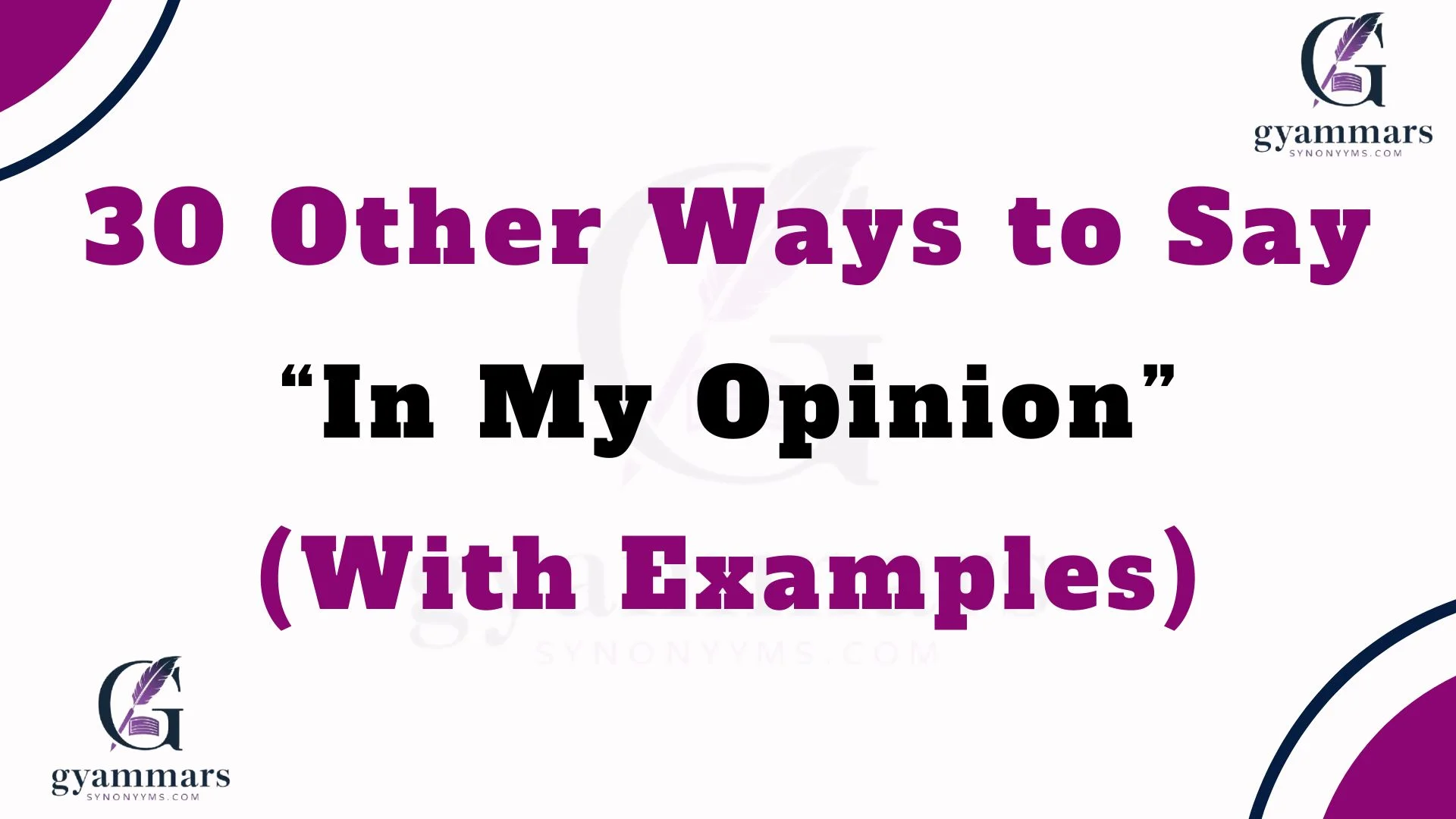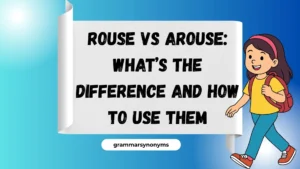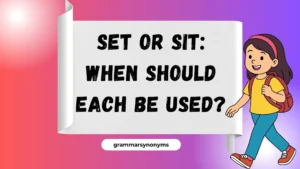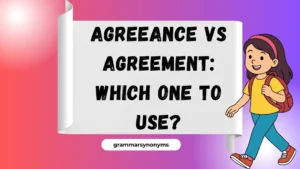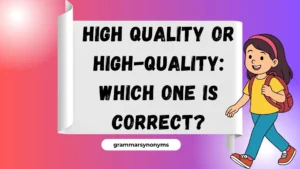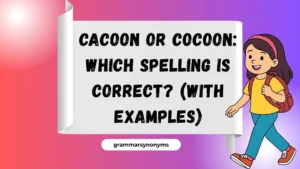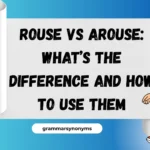Finding the right words to express your thoughts can make all the difference in how people receive your message. Saying “in my opinion” is a common way to share what you think, but it can sound repetitive or too formal in certain situations. By learning different ways to express the same idea, you can sound more natural, confident, and connected to others—whether you’re writing, debating, or simply chatting with a friend.
Below are 30 thoughtful and versatile alternatives to help you share your point of view with warmth, empathy, and authenticity.
What Does “In My Opinion” Mean?
The phrase “in my opinion” means you’re expressing your personal thoughts, beliefs, or viewpoint about something. It shows that what follows is subjective—it comes from your own perspective, not an absolute fact.
For example: 👉 In my opinion, kindness matters more than success.
It’s often used to soften statements and make them sound respectful and open-minded.
Is It Professional or Polite to Say “In My Opinion”?
Yes, saying “in my opinion” is both professional and polite, especially in discussions where differing views are expected. It communicates humility and respect, signaling that you understand others might think differently.
However, in some professional or academic contexts, it’s better to use alternatives that sound more polished, such as “from my perspective” or “it seems to me.” These phrases sound confident yet diplomatic.
Pros or Cons of Saying “In My Opinion”
ProsConsShows humility and respectCan sound repetitive if overusedEncourages open dialogueMight make you sound uncertainHelps clarify subjectivityLess formal in professional writing
To keep your communication fresh, use the alternatives below to express your views with variety and grace.
Synonyms For “In My Opinion”
- From My Perspective
- I Believe
- It Seems to Me
- To Me
- I Think
- In My View
- Personally Speaking
- From Where I Stand
- As Far as I’m Concerned
- If You Ask Me
- To My Mind
- I Feel
- From My Understanding
- I Suppose
- Speaking Personally
- My Take Is
- I’d Say
- I Reckon
- I’m of the Opinion That
- As I See It
- I’d Argue That
- It’s My View That
- I Hold the View That
- My Impression Is
- I’m Convinced That
- I’d Suggest That
- I Find That
- I’d Like to Point Out
- The Way I See Things
- My Perspective On This Is
1. From My Perspective
Definition: A phrase that shares how something appears or feels from your personal viewpoint.
Explanation: This sounds thoughtful and reflective, ideal when you want to add emotional or situational context.
Example: From my perspective, everyone deserves a second chance.
Best Use: Perfect for discussions, essays, or empathetic debates.
Tone: Polite, reflective, and balanced.
Additional Notes: Adds emotional depth and shows understanding of other viewpoints.
2. I Believe
Definition: Expresses a personal conviction or faith in an idea or concept.
Explanation: This is strong but still respectful—it suggests thoughtfulness without sounding arrogant.
Example: I believe teamwork makes challenges easier to overcome.
Best Use: Ideal for persuasive writing or motivational conversations.
Tone: Confident and sincere.
Additional Notes: Sounds positive and assertive without being forceful.
3. It Seems to Me
Definition: Communicates that something appears a certain way to you personally.
Explanation: Adds softness to your opinion, perfect for sensitive discussions.
Example: It seems to me that communication solves most relationship issues.
Best Use: Diplomatic conversations and delicate feedback.
Tone: Gentle and understanding.
Additional Notes: Implies openness to being corrected or hearing others out.
4. To Me
Definition: A short and simple phrase that introduces your personal interpretation.
Explanation: It’s conversational and suits informal settings well.
Example: To me, happiness isn’t about wealth but peace of mind.
Best Use: Everyday speech and friendly exchanges.
Tone: Casual and warm.
Additional Notes: Use it in relaxed settings, not formal documents.
5. I Think
Definition: A universal phrase to state a thought or opinion.
Explanation: It’s direct and natural but can sound repetitive if used too often.
Example: I think honesty is the foundation of trust.
Best Use: Casual conversation and brainstorming sessions.
Tone: Neutral and conversational.
Additional Notes: Great for spoken communication; avoid overusing in essays.
6. In My View
Definition: A refined way of expressing personal judgment.
Explanation: It’s often used in formal writing and professional conversations.
Example: In my view, effective leadership requires empathy.
Best Use: Formal discussions, articles, and workplace debates.
Tone: Professional and respectful.
Additional Notes: A classy alternative that sounds intelligent and composed.
7. Personally Speaking
Definition: Highlights that your statement reflects your personal stance.
Explanation: Adds warmth and individuality to your message.
Example: Personally speaking, I prefer quiet over constant socializing.
Best Use: Blogs, interviews, and friendly advice.
Tone: Warm and relatable.
Additional Notes: Perfect for conversational writing or storytelling.
8. From Where I Stand
Definition: Shows how you see things based on your experiences or values.
Explanation: Adds emotional nuance and shows self-awareness.
Example: From where I stand, forgiveness is freedom.
Best Use: Meaningful discussions or opinion pieces.
Tone: Empathetic and grounded.
Additional Notes: Sounds sincere; ideal for sharing moral or emotional insights.
9. As Far as I’m Concerned
Definition: Indicates your personal stance or boundary on an issue.
Explanation: Used to emphasize personal conviction with a hint of firmness.
Example: As far as I’m concerned, honesty should never be compromised.
Best Use: When expressing strong personal beliefs.
Tone: Firm yet polite.
Additional Notes: Good for assertive but respectful statements.
10. If You Ask Me
Definition: A casual way to introduce your opinion.
Explanation: It’s often used when offering advice or friendly feedback.
Example: If you ask me, patience always pays off.
Best Use: Informal chats, friendly suggestions.
Tone: Conversational and easygoing.
Additional Notes: Avoid in professional contexts—it’s too informal.
11. To My Mind
Definition: A thoughtful expression meaning “in my judgment.”
Explanation: Common in British English, it sounds intellectual and calm.
Example: To my mind, education is the greatest gift you can give.
Best Use: Essays, thoughtful writing, and cultural discussions.
Tone: Sophisticated and reflective.
Additional Notes: Gives a classic and literary feel to your speech.
12. I Feel
Definition: Conveys emotions rather than rational thought.
Explanation: Softens opinions by framing them emotionally.
Example: I feel that kindness creates stronger connections.
Best Use: Emotional topics, relationships, or counseling.
Tone: Empathetic and heartfelt.
Additional Notes: Use for emotional impact, not analytical arguments.
13. From My Understanding
Definition: Expresses what you have comprehended or interpreted.
Explanation: Shows humility and openness to correction.
Example: From my understanding, we’re meeting next week.
Best Use: Clarifications and collaborative discussions.
Tone: Neutral and cautious.
Additional Notes: Good in academic or professional environments.
14. I Suppose
Definition: Communicates tentative agreement or mild opinion.
Explanation: Useful when you’re not fully certain.
Example: I suppose we could try a different approach.
Best Use: When sharing a gentle or flexible idea.
Tone: Humble and soft.
Additional Notes: Good for diplomacy and compromise.
15. Speaking Personally
Definition: Emphasizes that your opinion is based on personal feelings.
Explanation: Adds sincerity and warmth to statements.
Example: Speaking personally, I find solitude healing.
Best Use: Emotional or reflective topics.
Tone: Heartfelt and intimate.
Additional Notes: Perfect for speeches or heartfelt writing.
16. My Take Is
Definition: A phrase used to express your personal interpretation or analysis of a situation.
Explanation: It feels conversational and analytical, often used in discussions where you’re sharing your view based on logic or experience.
Example: My take is that consistency matters more than intensity when chasing goals.
Best Use: Perfect for social media discussions, podcasts, and analytical writing.
Tone: Balanced and conversational.
Additional Notes: Adds a sense of individuality and insight without sounding rigid.
17. I’d Say
Definition: A relaxed way to express your opinion or observation.
Explanation: Often used when you’re giving a quick thought or estimation.
Example: I’d say she’s one of the most creative people I’ve met.
Best Use: Casual talks, interviews, or informal messages.
Tone: Friendly and relaxed.
Additional Notes: Avoid in formal reports but great for relatable communication.
18. I Reckon
Definition: Common in British or Australian English, meaning I think or I believe.
Explanation: Adds character and cultural warmth to your tone.
Example: I reckon he’ll do just fine in his new job.
Best Use: Casual conversation or friendly writing.
Tone: Informal, regional, and confident.
Additional Notes: Avoid in formal or academic writing—it’s too colloquial.
Read This: 30 Other Ways to Say “as Well As” (With Examples)
19. I’m of the Opinion That
Definition: A formal and respectful way to present your personal stance.
Explanation: Often used in essays, research, or professional settings.
Example: I’m of the opinion that creativity thrives under freedom.
Best Use: Academic writing, debates, and professional presentations.
Tone: Formal and confident.
Additional Notes: Ideal when you need to sound authoritative yet polite.
20. As I See It
Definition: Expresses how you personally interpret a situation.
Explanation: It’s natural and warm—great for maintaining empathy during disagreements.
Example: As I see it, communication is more important than agreement.
Best Use: Used when gently presenting your view in emotional or complex conversations.
Tone: Empathetic and reflective.
Additional Notes: Balances personal opinion with openness to dialogue.
21. I’d Argue That
Definition: Used to assert an opinion in a logical or persuasive manner.
Explanation: Perfect for debates or discussions requiring evidence or reasoning.
Example: I’d argue that failure is the best teacher.
Best Use: Essays, debates, or thought-provoking discussions.
Tone: Confident and persuasive.
Additional Notes: Adds authority but should be backed with reasoning or examples.
22. It’s My View That
Definition: A calm and respectful alternative to express personal belief.
Explanation: Professional yet personable, perfect for formal or semi-formal writing.
Example: It’s my view that honesty always earns long-term respect.
Best Use: Workplace or academic environments.
Tone: Formal and courteous.
Additional Notes: A slightly more polished version of “in my opinion.”
23. I Hold the View That
Definition: Shows a strongly held belief based on values or experience.
Explanation: Used in intellectual or persuasive discussions to assert conviction.
Example: I hold the view that education should be accessible to everyone.
Best Use: Opinion pieces, essays, or formal discussions.
Tone: Serious and intellectual.
Additional Notes: Good for expressing deeply rooted beliefs professionally.
24. My Impression Is
Definition: Expresses what you perceive or sense, rather than a fixed belief.
Explanation: Adds subtlety, showing your idea may evolve with new information.
Example: My impression is that they truly care about their work.
Best Use: Diplomatic feedback, interviews, or observation sharing.
Tone: Cautious and respectful.
Additional Notes: Helps maintain professionalism in uncertain situations.
25. I’m Convinced That
Definition: Shows strong personal belief with certainty.
Explanation: Used when you’re confident in your opinion after deep thought or evidence.
Example: I’m convinced that optimism can change outcomes.
Best Use: Persuasive communication or motivational writing.
Tone: Assured and passionate.
Additional Notes: Avoid overuse—it can sound rigid if used excessively.
26. I’d Suggest That
Definition: Used when offering a gentle opinion or advice.
Explanation: Softens the tone while still sharing your point of view.
Example: I’d suggest that taking a break might help you reset.
Best Use: Coaching, leadership, or supportive feedback.
Tone: Supportive and polite.
Additional Notes: Shows empathy and encourages collaboration.
27. I Find That
Definition: Describes your personal observation or experience.
Explanation: Emphasizes what you’ve noticed or felt firsthand.
Example: I find that journaling helps me clear my mind.
Best Use: Self-reflective writing or experience sharing.
Tone: Authentic and introspective.
Additional Notes: Ideal for blogs, testimonials, and personal essays.
28. I’d Like to Point Out
Definition: Introduces your view while maintaining diplomacy and tact.
Explanation: Perfect for constructive criticism or suggesting alternatives.
Example: I’d like to point out that planning ahead saves time later.
Best Use: Meetings, group discussions, and professional emails.
Tone: Polite and factual.
Additional Notes: Adds authority without sounding confrontational.
29. The Way I See Things
Definition: Shares your personal outlook or philosophy.
Explanation: Adds warmth and individuality to your message.
Example: The way I see things, small wins create big changes.
Best Use: Casual discussions or inspirational contexts.
Tone: Personal and heartfelt.
Additional Notes: Invites dialogue and feels emotionally open.
30. My Perspective On This Is
Definition: A balanced, formal way to express how you interpret a topic.
Explanation: Shows clear ownership of your opinion while maintaining professionalism.
Example: My perspective on this is that teamwork leads to lasting success.
Best Use: Formal writing, meetings, and educational discussions.
Tone: Professional and confident.
Additional Notes: Adds authority while respecting other viewpoints.
Conclusion
Finding different ways to say “in my opinion” helps you sound more engaging, empathetic, and clear. Whether you’re writing a heartfelt message, leading a meeting, or posting online, the right phrase can shape how others perceive your words.
Use softer phrases like “It seems to me” when you want to sound kind and reflective, or assertive ones like “I’m convinced that” when you need confidence. The beauty of language lies in its variety—each phrase lets you share your truth while keeping respect and warmth at the center of your message.
FAQs
1. Is it okay to say “in my opinion” in formal writing?
Yes, but it’s better to use more professional alternatives like “in my view” or “from my perspective” in academic or business settings.
2. What’s a more confident way to say “in my opinion”?
Try “I believe”, “I’m convinced that”, or “I hold the view that.” These show assurance and clarity.
3. Can I use “I think” instead of “in my opinion”?
Yes, but it’s more casual. For a polished tone, use “I’d argue that” or “It’s my view that.”
4. What’s a soft and polite way to share my thoughts?
Use “It seems to me”, “From my understanding”, or “Personally speaking.” They sound gentle and empathetic.
5. How can I make my opinions sound respectful in disagreements?
Start with phrases like “From my perspective” or “As I see it”—they show you’re open to other ideas while sharing your own.

“Emma Rose at Grammar Synonyms is your go-to expert for everything related to language and expression. Whether you’re refining your grammar, searching for the perfect synonym, or looking for creative ways to improve your writing, Emma Rose provides the tools and inspiration you need. With a wide range of resources designed to elevate your communication, Grammar Synonyms helps you find just the right words to make every sentence shine.
